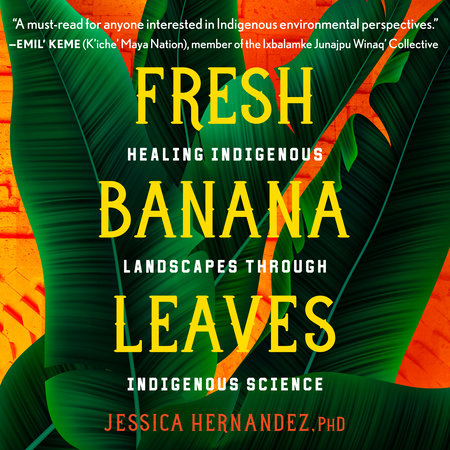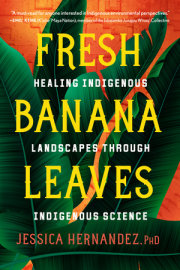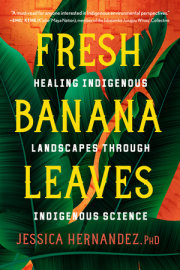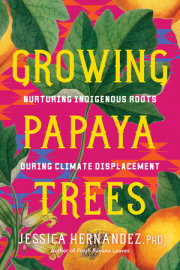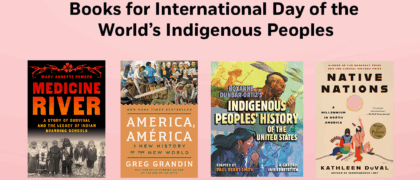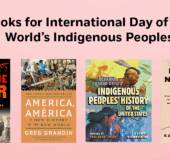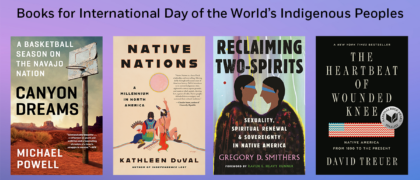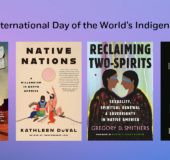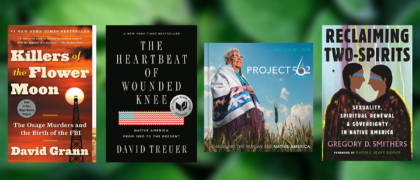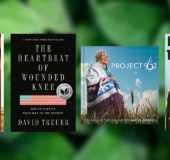"Westerners, [Dr. Hernandez] writes, fall short on including Indigenous people in environmental dialogues and deny them the social and economic resources necessary to recover from 'land theft, cultural loss, and genocide' and to prepare for the future effects of climate change."
—Publishers Weekly
“In Fresh Banana Leaves, Jessica Hernandez weaves personal, historical, and environmental narratives to offer us a passionate and powerful call to increase our awareness and to take responsibility for caring for Mother Earth.” A must-read for anyone interested in Indigenous environmental perspectives.”
—EMIL’ KEME (K’iche’Maya Nation), member of the Ixbalamke Junajpu Winaq’ Collective
“A groundbreaking book that busts existing frameworks about how we think about Indigeneity, science, and environmental policy. A must-read for practitioners and theorists alike.”
—SANDY GRANDE, professor of political science and Native American and Indigenous studies, University of Connecticut
“Inspiring and sobering, philosophically powerful and practically grounded, this book weaves together storytelling, razor sharp critiques of oppression, and liberatory pathways for how we can achieve transformation in solidarity. Dr. Hernandez offers the instructions so many environmental protectors and conservationists need to know.
—KYLE WHYTE, George Willis Pack Professor, School for Environment and Sustainability, University of Michigan
“Dr. Hernandez offers many gifts for us to learn, grow, and heal. She shares many details of how settler colonialism has impacted Indigenous people, specifically people of Mexico and Central America. Fresh Banana Leaves is a true validation of the Indigenous knowledge of community.”
—DR.MICHAEL SPENCER, Presidential Term Professor of Social Work and director of Native Hawaiian, Pacific Islander, and Oceania Affairs at the IndigenousWellness Research Institute (IWRI),University
of Washington
“While ecological destruction has intensified, many of the approaches intended to minimize cataclysmic harm continue to emerge from the Global North. What has long been ignored are the practices and world views that Indigenous peoples have with our nonhuman relatives. Fresh Banana Leaves offers seeds—through the form of lived experiences and historic practices that come from the author’s own ancestors and relatives. We are invited to take heed, to be part of rebuilding a world that is more dignified and responsive to our environment and nonhuman living relations. Our collective futures hinge upon us abiding.”
—DR. ALEJANDRO VILLALPANDO, assistant professor of Latin American Studies, Cal State LA

